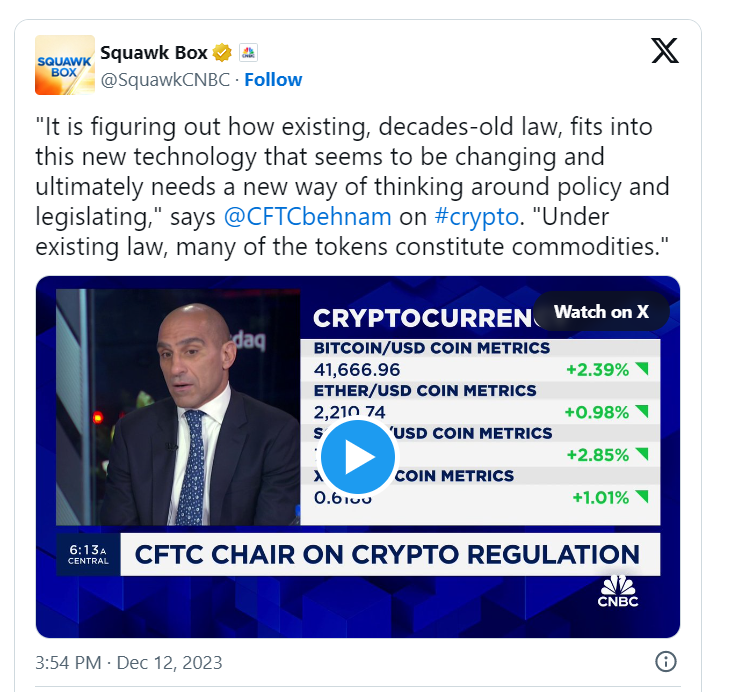In an environment marked by regulatory uncertainty, Commodity Futures Trading Commission (CFTC) Chairman Rostin Behnam shed light on the regulatory status of crypto assets. During CNBC’s “Squawk Box,” Behnam confirmed that a significant number of tokens are classified as commodities according to current laws, providing a degree of clarity amidst the ongoing regulatory flux in the cryptocurrency industry.
Urgent Need for Legislative Activity
Amidst the regulatory complexities faced by the crypto industry, Behnam emphasized the urgency of legislative intervention. He highlighted that Congress members are actively grappling with the complex regulatory environment, underscoring the urgent need for clear guidelines to navigate the evolving crypto space.

Despite being a significant player in the global crypto arena, the United States faces challenges due to a lack of regulatory clarity and consistent enforcement actions. Behnam acknowledged that when regulatory uncertainties combine with enforcement activities, it acts as a deterrent for businesses in the crypto sector and affects their desire to operate in the U.S.
Regulatory Battlefield in Cryptocurrencies: SEC vs. CFTC
Behnam underscored a significant obstacle in the form of an ongoing turf war between regulatory agencies, notably the Securities and Exchange Commission (SEC) and the CFTC. This internal conflict, according to Behnam, hinders the creation of comprehensive regulatory frameworks and contributes to the current ambiguity surrounding crypto regulations.
Behnam’s perspective on crypto regulation differs from that of SEC Chairman Gary Gensler, who consistently categorizes crypto intermediaries as dealing in securities, which fall under the SEC’s jurisdiction. Despite this difference, Behnam expressed a positive working relationship with the SEC, emphasizing a common interest in protecting U.S. markets, the financial ecosystem, and consumers.
CFTC’s Classification of Ethereum as a Commodity
Behnam reiterated his view, previously stated during a Senate Agriculture Committee hearing, that various digital assets, including Ethereum, are commodities. This classification, based on the assets being listed on CFTC exchanges, has established a jurisdictional framework for the CFTC to oversee both the derivatives and the underlying markets of assets like Ethereum.
In contrast to Behnam, Gensler from the SEC asserts that all tokens except Bitcoin are securities. This fundamental disagreement contributes to the ongoing regulatory debate, with Gensler emphasizing the role of intermediaries and the public’s expectation of profit.
As the regulatory landscape continues to evolve, the crypto industry awaits clearer guidelines and collaborative efforts to resolve regulatory discord and promote a favorable environment for businesses in the United States.


 Türkçe
Türkçe Español
Español











